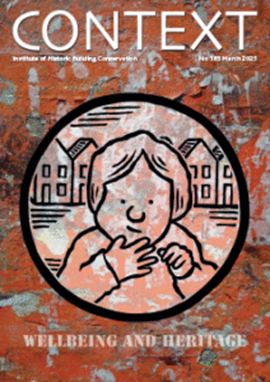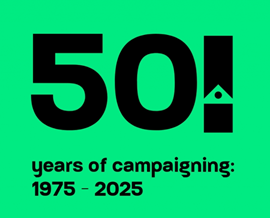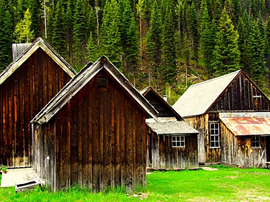Historic England carbon literacy training courses
Contents |
[edit] Heritage Carbon Literacy course
Historic England is looking to deliver Carbon Literacy Training courses across the heritage sector to support organisations on their journeys to Net Zero.
Historic England is looking to roll out Carbon Literacy Training across the heritage sector to support organisations on their journeys to Net Zero. In order to do so, we would like to work with heritage sector support and representative organisations, bodies and networks, to promote, administer and coordinate the roll out of this training.
Carbon Literacy is a key way for organisations to gain an awareness of the causes and impacts of climate change and an understanding of carbon emissions. It provides a great foundation for individuals, teams and organisations to begin to take steps towards reducing their carbon emissions and become more environmentally sustainable.
Historic England has created a Heritage Carbon Literacy course, accredited by the Carbon Literacy Trust. This is based on the Museum Carbon Literacy course that is currently being delivered to museums across the country. Historic England is developing a pool or Framework of Heritage Carbon Literacy trainers that will be made available to heritage support and representative organisations to run the training courses to the sector. These trainers will be funded separately by Historic England and allocated to the different membership organisations.
[edit] Planning for Net Zero now
The Government’s Net Zero Strategy: ‘Build Back Greener’ sets out policies and proposals for decarbonising all sectors of the UK economy to meet our Net Zero target by 2050. Although, the 2050 deadline may seem a long way away for many organisations, there is an enormous amount to be done by then, and it is essential that heritage organisations begin to plan for Net Zero now.
Recent sector consultation by Historic England (Sector to Net Zero project) has shown that the majority of heritage organisations – in particular Small and Medium Sized Enterprises (SMEs) – are at the beginning of their journeys towards Net Zero.
[edit] Consultation results
The consultation has shown that heritage organisations need support on the preparatory phase of the journey towards Net Zero, which includes having a better understanding of the principal issues and questions, such as:
- what are the impacts of climate change on heritage
- what are the main carbon emissions
- how can we measure these
- how do we create policies and plans to reduce these
- what measures can be implemented to reduce emissions
Historic England’s Sector to Net Zero recommendations and delivery plan sets out various ways to support the sector in preparing itself to reduce its carbon emissions. One of these is to deliver Carbon Literacy Training to heritage organisations to start off the process and to support behaviour change within organisations.
[edit] Carbon Literacy Trust and previous courses
Carbon Literacy is defined by the Carbon Literacy Trust as ‘An awareness of the carbon costs and impacts of everyday activities and the ability and motivation to reduce emissions, on an individual, community and organisational basis.’ It has been delivered across the UK… to the civil service, NHS, local authorities etc.
Historic England has created a Heritage Carbon Literacy course which is built on the successful Museum Carbon Literacy course (LINK) created by the Roots and Branches project. This course is currently being delivered to museums across the country. The heritage course provides a more tailored offering with case studies and examples associated more directly with the heritage sector. A number of these have been collected from heritage organisations which are moving forwards with their decarbonisation plans.
[edit] Call for proposal and further information
Read more in the Call for Proposals PDF
For more background see the HE website and the Carbon Literacy Project website
This article appears on the IHBC news and blog site as "HE rolling out ‘Carbon Literacy Training’ courses to sector", dated September 8, 2023
--Institute of Historic Building Conservation
[edit] Related articles on Designing Buildings
- Black carbon.
- Blue carbon.
- Biogenic carbon.
- Biologic carbon sequestration.
- Carbon capture.
- Carbon cycle.
- Carbon dioxide.
- Carbon emissions.
- Carbon sequestration.
- Conservation Professional Practice Principles.
- Decision support for energy improvements.
- Embodied energy in construction
- Geologic carbon sequestration.
- New energy retrofit concept: 'renovation trains' for mass housing.
- Renovation v refurbishment v retrofit.
- Retrofit coordinator.
- Retrofit, refurbishment and the growth of connected HVAC technology.
- The Each Home Counts report and traditional buildings.
- The New Tenement: residences in the inner city since 1970.
- Retrofit measures for historic buildings and cities.
- Upcycling.
IHBC NewsBlog
IHBC Context 183 Wellbeing and Heritage published
The issue explores issues at the intersection of heritage and wellbeing.
SAVE celebrates 50 years of campaigning 1975-2025
SAVE Britain’s Heritage has announced events across the country to celebrate bringing new life to remarkable buildings.
IHBC Annual School 2025 - Shrewsbury 12-14 June
Themed Heritage in Context – Value: Plan: Change, join in-person or online.
200th Anniversary Celebration of the Modern Railway Planned
The Stockton & Darlington Railway opened on September 27, 1825.
Competence Framework Launched for Sustainability in the Built Environment
The Construction Industry Council (CIC) and the Edge have jointly published the framework.
Historic England Launches Wellbeing Strategy for Heritage
Whether through visiting, volunteering, learning or creative practice, engaging with heritage can strengthen confidence, resilience, hope and social connections.
National Trust for Canada’s Review of 2024
Great Saves & Worst Losses Highlighted
IHBC's SelfStarter Website Undergoes Refresh
New updates and resources for emerging conservation professionals.
‘Behind the Scenes’ podcast on St. Pauls Cathedral Published
Experience the inside track on one of the world’s best known places of worship and visitor attractions.
National Audit Office (NAO) says Government building maintenance backlog is at least £49 billion
The public spending watchdog will need to consider the best way to manage its assets to bring property condition to a satisfactory level.


















